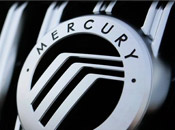How Much Does 2001 Mercury Villager Insurance Cost?
Trying to find better insurance rates for your Mercury Villager? Searching for cheap insurance over the internet can be challenging for beginners to comparison shopping online. Because there are so many choices, how can consumers even start to compare every one to find the best available rates?
If you currently have a car insurance policy, you will be able to save some money using these methods. This article will instruct you on the most effective way to quote insurance. But consumers need to learn how companies determine prices.
Which Car Insurance is Cheapest?
Most major insurance companies such as Allstate, GEICO and Progressive allow you to get prices for coverage on their websites. Getting online quotes is fairly simple as you simply type in your required coverages into the quote form. Once you submit the form, the company’s rating system requests your driving and credit reports and generates a price determined by many factors.
Quoting online makes comparing rates easy, but the process of having to visit many different websites and enter the same data into a form can be a bit tiresome and repetitive. But it’s absolutely necessary to get many rate quotes if you want to find the lowest possible prices on car insurance.
A less time-consuming method to compare car insurance pricing uses one form that gets prices from more than one company. It saves time, eliminates repetitive work, and makes price shopping online much more enjoyable and efficient. After sending the form, it is quoted and you can select your choice of the quotes returned. If you find a better price you can simply submit the application and purchase coverage. The entire process takes just a few minutes to complete and you will find out if you’re overpaying now.
To save time and use this form to compare rates, click here and enter your vehicle and coverage information. If you have coverage now, it’s recommended you replicate the coverages exactly as shown on your declarations page. Doing this guarantees you are getting an apples-to-apples comparison for similar insurance coverage.
How much car insurance do I need?
When it comes to buying coverage for your vehicles, there is no “best” method to buy coverage. Everyone’s situation is a little different.
These are some specific questions might help in determining whether your personal situation would benefit from professional advice.
- Should I drop comprehensive coverage on older vehicles?
- I have a DUI can I still get coverage?
- When should I remove comp and collision on my 2001 Mercury Villager?
- Will my insurance pay for OEM parts?
- Is my vehicle covered by my employer’s policy when using it for work?
- Do I need added coverage for expensive stereo equipment?
If you don’t know the answers to these questions then you might want to talk to an insurance agent. If you don’t have a local agent, fill out this quick form.
Insurance policy specifics
Knowing the specifics of your insurance policy helps when choosing the right coverages for your vehicles. The coverage terms in a policy can be ambiguous and nobody wants to actually read their policy.
Auto liability insurance
This can cover damage that occurs to a person or their property in an accident. It protects you against other people’s claims, and doesn’t cover your own vehicle damage or injuries.
It consists of three limits, bodily injury for each person injured, bodily injury for the entire accident and a property damage limit. You might see liability limits of 50/100/50 which stand for $50,000 in coverage for each person’s injuries, a per accident bodily injury limit of $100,000, and a total limit of $50,000 for damage to vehicles and property.
Liability coverage pays for things like attorney fees, pain and suffering and court costs. The amount of liability coverage you purchase is a personal decision, but buy as high a limit as you can afford.
Coverage for collisions
Collision coverage covers damage to your Villager caused by collision with an object or car. You will need to pay your deductible and then insurance will cover the remainder.
Collision insurance covers things like sustaining damage from a pot hole, crashing into a building, colliding with another moving vehicle and driving through your garage door. Collision is rather expensive coverage, so consider removing coverage from vehicles that are 8 years or older. You can also bump up the deductible to save money on collision insurance.
Medical payments coverage and PIP
Med pay and PIP coverage kick in for short-term medical expenses like nursing services, prosthetic devices and ambulance fees. The coverages can be utilized in addition to your health insurance policy or if you do not have health coverage. They cover not only the driver but also the vehicle occupants as well as if you are hit as a while walking down the street. PIP coverage is not available in all states but can be used in place of medical payments coverage
Comprehensive coverage
Comprehensive insurance coverage covers damage OTHER than collision with another vehicle or object. You first have to pay a deductible then your comprehensive coverage will pay.
Comprehensive can pay for things like hitting a bird, vandalism, a broken windshield, falling objects and a tree branch falling on your vehicle. The highest amount you can receive from a comprehensive claim is the cash value of the vehicle, so if it’s not worth much more than your deductible consider removing comprehensive coverage.
Uninsured/Underinsured Motorist coverage
This coverage protects you and your vehicle from other motorists when they either are underinsured or have no liability coverage at all. It can pay for medical payments for you and your occupants as well as your vehicle’s damage.
Due to the fact that many drivers have only the minimum liability required by law, it only takes a small accident to exceed their coverage. So UM/UIM coverage is a good idea.

